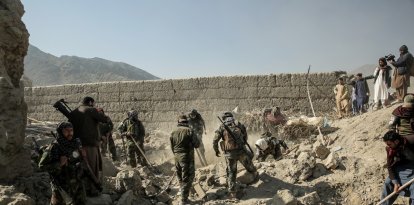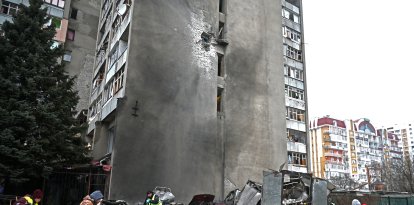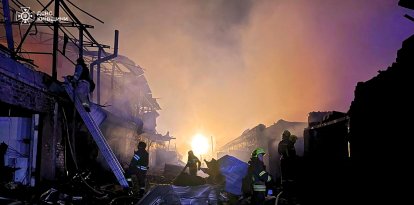Iran triples its production of enriched uranium in the midst of the regional crisis
The fuel is used to fuel atomic weapons and is at the center of negotiations with the West for the disarmament of the Islamist regime.

Ali Kahemeni / Wikimedia Commons.
Iran's Islamist regime has tripled its production of enriched uranium in recent months, instead of decreasing production as expected. The International Atomic Energy Agency (IAEA), a UN agency, stated as much this week in a report to which the Associated Press and Reuters had access.
According to that report, Iran is producing uranium enriched to 60% purity at a rate of 4 pounds per month, up from 1.5 kg in the summer and early fall. Enriched uranium is one of the main components to power nuclear fueled weapons. According to estimates, Iran has enough material to produce at least three nuclear weapons and is close to 90% pure uranium, which is a requirement for the operability of explosive charges.
Iran thus ignores the requests of the Joint Comprehensive Plan of Action (JCPOA), led by the UN Security Council, for its nuclear de-escalation. The Biden Administration and the Ayatollah regime reached an agreement to reduce production, which motivated, in part, the unblocking of Iranian assets and the exchange of prisoners between both countries.
The Islamist regime thus takes a dangerous turn in the midst of escalating tensions in the Middle East since the Hamas attack against Israel on October 7 and the following invasion of Gaza by the Israel Defense Forces (IDF).
As Israel's Defense Minister, Yoav Gallant, stated this week, the conflict in the Middle East is becoming increasingly wider and involving more fronts and actors as the war progresses. Israel has, according to Gallant, seven open fronts. Many of them are, in addition to Iran itself, proxy groups armed and supported by Tehran.
Pressure against the United States
The acceleration of the Iranian nuclear arms process could put the Biden Administration on the ropes, which sees its previous efforts and concessions to the Iranian regime washed away. If Biden's foreign officials assured Israel that they want the conflict to end as soon as possible, it remains to be seen if the new IAEA report will cause any change in this position.
Iran intends to use this asset to achieve its objectives and it is unknown where it will set its limits to continue with the production of enriched uranium. Meanwhile, Israel promises a new phase of the conflict by the end of January 2024, in which it will establish a contingency zone in Gaza and withdraw most of its troops from the Strip.
The Government of Benjamin Netanyahu has not yet updated the position of Israel, which in the past assured that it would attack the Iranian nuclear infrastructure if Tehran achieved at least 90% fuel enrichment.

























